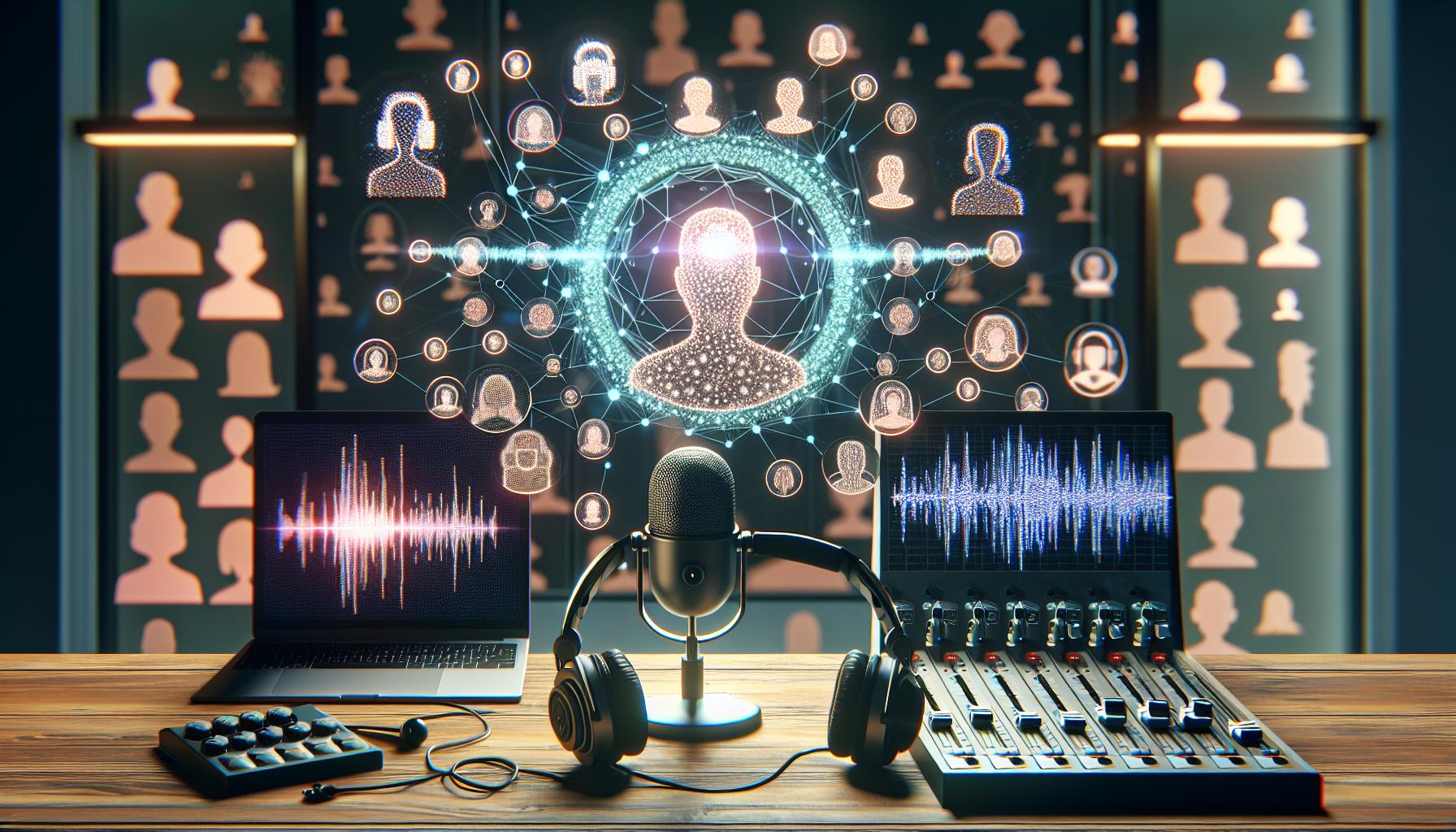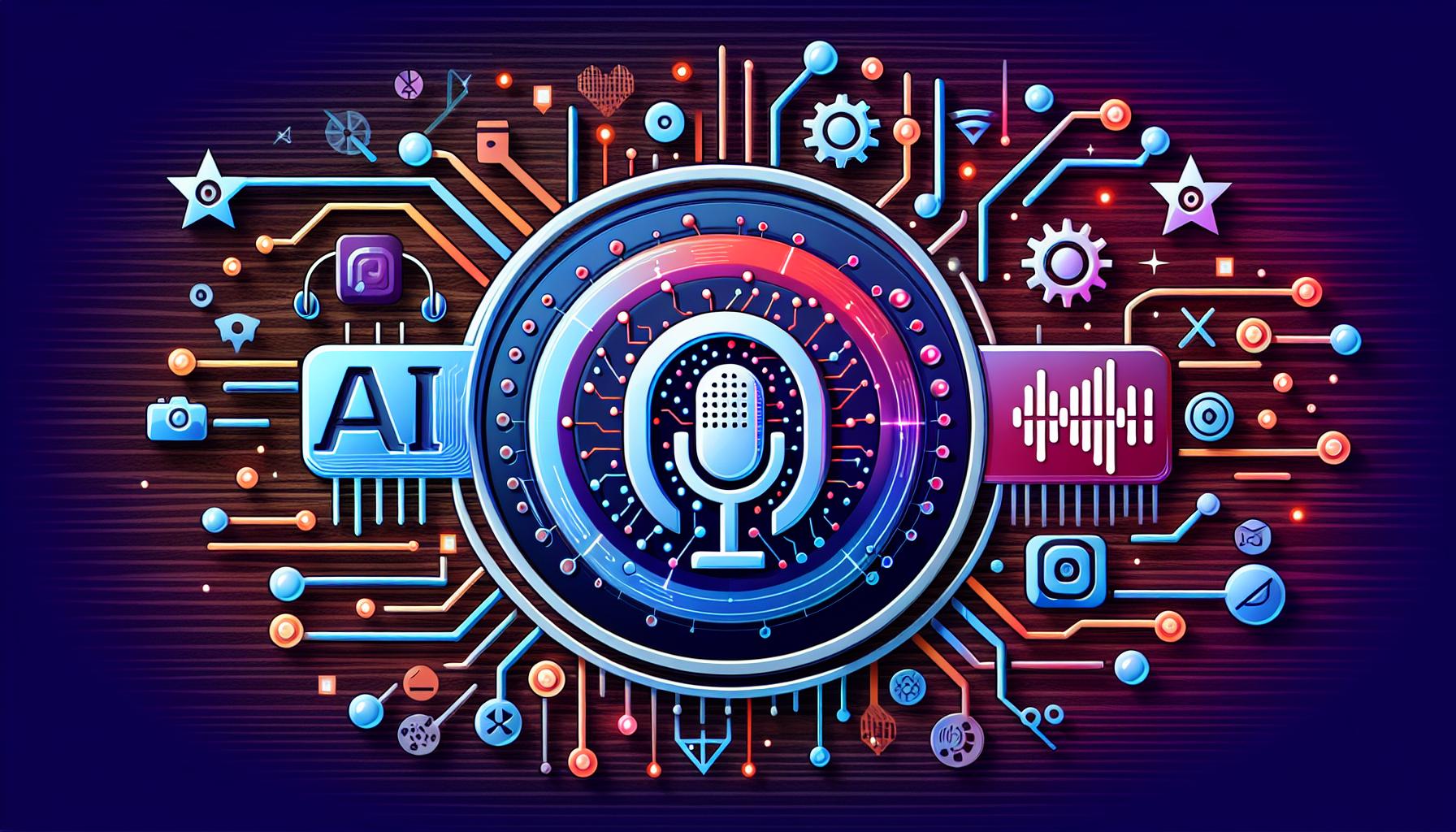A.I. Guys Podcast Ep.4 : Debunking AI Myths: Fear, Uncertainty, and Doubt Explained
AI Challenges in 2024: Stop Fear, Uncertainty And Doubt
Does the fear of AI taking over your job keep you up at night? Fell the uncertainty that comes with AI challenges? You're not alone.
While artificial intelligence holds incredible promise, it also presents real-world challenges that can't be ignored.
In this episode of the AI Guys, Rich Swier, and Lee Dixon take a hard look at the problems with AI – from biased algorithms to technical limitations – and explore practical solutions to ensure a brighter AI future.
Addressing Problems With AI: The Fear of AI Taking Over
One of the most pressing problems with AI is its fear of it taking over not just the world but our jobs.
This fear is a legitimate concern that has been explored in countless works of science fiction and is now becoming a reality. However, it is important to understand that AI is a tool created by humans and is ultimately under our control.
One of the key ethical problems with AI is the potential for job displacement. As AI becomes more advanced, many jobs that are currently performed by humans will likely be automated. This could lead to widespread unemployment and economic hardship.
Another ethical concern is the potential for AI to be used for malicious purposes. For example, AI could be used to create autonomous weapons systems that could operate without human intervention.
While these fears are understandable, AI is far from evil, and to mitigate any risks, it is important to develop ethical guidelines for the development and use of AI.
Where Does The Fear of AI Come From Today?
So, what are the real AI challenges and problems that this intelligence represents in 2024? As we approach 2024, the realm of artificial intelligence (AI) continues to evolve rapidly, presenting both exciting opportunities and significant challenges.
While AI has made remarkable progress in various fields, some certain key issues and problems demand our attention:
- Ethical Considerations:
- Data Quality and Bias:
- Explainability and Interpretability:
- Safety and Security:
- Human-AI Collaboration:
- Long-Term Impact on Society:
- Skill Gap and Education:
By confronting these challenges and problems head-on, we can harness the transformative potential of AI while mitigating potential risks and ensuring a responsible and beneficial future for humanity.
Data Distortions: The Mirror Effect
Think of AI as a mirror reflecting the data it's been fed. If that data contains biases (e.g., historical discrimination in hiring practices), the AI will likely mirror those biases in its decisions.
This can have real consequences, from discriminating against certain groups in loan approvals to perpetuating stereotypes in facial recognition technology.
Unequal Outcomes: When AI Goes Wrong
We've already seen real-world examples of AI systems leading to discriminatory results. For instance, some AI-powered hiring tools have been found to favor certain demographics over others, perpetuating existing inequalities.
Fairness First: Solutions for a Better AI
Luckily, there are ways to address AI bias. One approach is developing explainable AI systems that reveal how they arrive at decisions, making it easier to identify and correct biases.
Another is ensuring that AI is trained on diverse and representative datasets that reflect the full spectrum of human experiences. Ongoing monitoring and testing of AI systems are also crucial to detect and mitigate biases as they emerge.
Technical Troubles: AI Gone Wrong?
Beyond the ethical concerns, AI also faces several technical challenges that limit its capabilities and potential impact.
Data Dependency: The Fuel for AI
Effective AI models are hungry for data. They require vast amounts of high-quality information to learn and make accurate predictions. However, obtaining such data can be expensive, time-consuming, and sometimes impossible since the data simply doesn't exist.
Effective AI models are insatiable when it comes to data. They require a continuous supply of high-quality information to fuel their learning processes and make accurate predictions.
Despite these challenges, there are strategies and best practices to effectively manage data for AI applications. These include:
- Establishing a clear data strategy that aligns with the overall business objectives.
- Investing in data engineering and data management capabilities to efficiently handle large datasets.
- Exploring alternative data sources, such as open-source datasets, web scraping, and sensor data.
- Implementing data augmentation techniques, such as data sampling, oversampling, and synthetic data generation, to enrich existing datasets.
- Employing robust algorithms and models that are resilient to noise and outliers.
Learning Curve: AI's Growing Pains
Even the most advanced AI systems struggle with adapting to new and unexpected situations.
They often excel at specific tasks but can fail spectacularly when faced with scenarios they haven't been trained on. This lack of adaptability can hinder AI's real-world applications.
To overcome this challenge, data management plays a crucial role. By continuously collecting and organizing diverse datasets, AI systems can learn from a wider range of scenarios and become more adaptable.
Data augmentation techniques further contribute to enhancing an AI system's adaptability.
Security Problems With AI
Artificial intelligence (AI) systems, despite their remarkable capabilities, are not immune to security vulnerabilities. AI systems can be vulnerable to adversarial attacks, where malicious actors intentionally manipulate data or algorithms to cause errors or unexpected behavior.
This poses a significant security risk, particularly in critical applications where AI systems play a vital role. For instance, in the healthcare sector, AI systems are used for disease diagnosis, treatment planning, and drug discovery.
The security implications of adversarial attacks on AI systems are profound. They undermine the trustworthiness and reliability of AI systems, making it difficult for organizations to fully leverage their potential.
How can AI become secure? How do we stop the fear of ai taking over our security systems and sensible information?
Robust AI System Design
AI systems should be designed to be inherently resistant to adversarial attacks. This can be achieved through techniques such as adversarial training, where the AI system is exposed to a variety of attack scenarios during training.
Data Integrity and Quality Control
The data used to train and operate AI systems must be carefully curated and validated to minimize the risk of adversarial manipulation. This includes employing data cleaning techniques, anomaly detection algorithms, and rigorous data validation processes.
Continuous Monitoring and Threat Intelligence
Organizations should establish robust monitoring mechanisms to detect and respond to adversarial attacks in real time. This involves collecting and analyzing data, identifying suspicious patterns, and implementing countermeasures to mitigate the impact of attacks.
Regulatory Frameworks and Standards
Governments and industry bodies should develop regulatory frameworks and standards to ensure that AI systems are developed and deployed in a secure and responsible manner. This can include requirements for adversarial attack testing, data protection, and transparent AI development processes.
AI & Us: The Human Side of the Equation
AI isn't just a technological advancement; it's a force that's reshaping how we work, live, and interact. But are these changes for the better? Let's examine some of the key human-centered challenges AI presents.
Job Shifts: Adaptation is Key
Automation powered by AI is transforming industries, automating tasks, and in some cases, replacing human workers.
This shift necessitates a focus on reskilling and upskilling the workforce to meet the demands of an AI-driven economy. Those who can adapt and learn new skills will thrive in this evolving landscape.
The Wealth Gap: Will AI Exacerbate Inequality?
There's a growing worry that AI could exacerbate existing socioeconomic disparities.
If AI primarily benefits those who already have access to resources and opportunities, it could leave marginalized communities further behind. Ensuring equitable access to AI's benefits is essential for a just and inclusive future.
"Out of Control" AI: Fact or Fiction?
One of the most debated AI challenges is the fear that AI could become so intelligent that it surpasses human control, leading to unintended and potentially harmful consequences.
While this scenario remains largely hypothetical, it's crucial to consider the ethical implications and develop safeguards to prevent such a situation.
Ethical AI Development: A Moral Compass
Establishing clear ethical guidelines and frameworks for AI development is paramount. This involves addressing issues like bias, transparency, and accountability to ensure that AI systems align with human values and societal goals.
Ethical Problems With AI
Artificial intelligence (AI) has the potential to revolutionize our lives in countless ways. From healthcare to transportation to finance, AI is already having a major impact on our world. However, with this potential comes great responsibility.
AI systems must be developed in a way that is ethical and responsible, or they could do more harm than good.
Addressing Issues of Bias, Transparency, and Accountability
In addition to establishing clear ethical guidelines and frameworks, several specific steps can be taken to address issues of bias, transparency, and accountability in AI development.
The ultimate goal of ethical AI development is to ensure that AI systems align with human values and societal goals. This means that AI systems should be designed to promote human well-being and to avoid causing harm
To achieve this goal, it is important to involve stakeholders from all walks of life in the development of AI systems. This includes people from different cultures, backgrounds, and perspectives.
By including a diverse range of voices, we can help to ensure that AI systems are developed in a way that reflects the values of all of humanity.
Knowledge is Power: Stopping The Fear of AI
Educating the public about AI's capabilities, limitations, and potential risks is crucial for informed decision-making and fostering trust.
This involves promoting AI literacy at all levels, from schools to workplaces, to empower individuals to engage critically with AI technologies.
AI is undeniably a transformative force with the potential to revolutionize our world. However, we must address its challenges head-on.
By prioritizing ethical development, investing in research, implementing thoughtful regulation, and educating the public, we can harness AI's power for good and ensure a future where AI serves humanity, not the other way around.
Keep up with AI with the AI Guys Podcast!
Blending humor and expertise, the AI Guy podcast renders complex AI concepts fun and accessible for everyone, from tech entrepreneurs to AI enthusiasts.
By subscribing to this must-listen podcast, you'll not only laugh and learn but also become the go-to expert among your peers.

 ™
™

